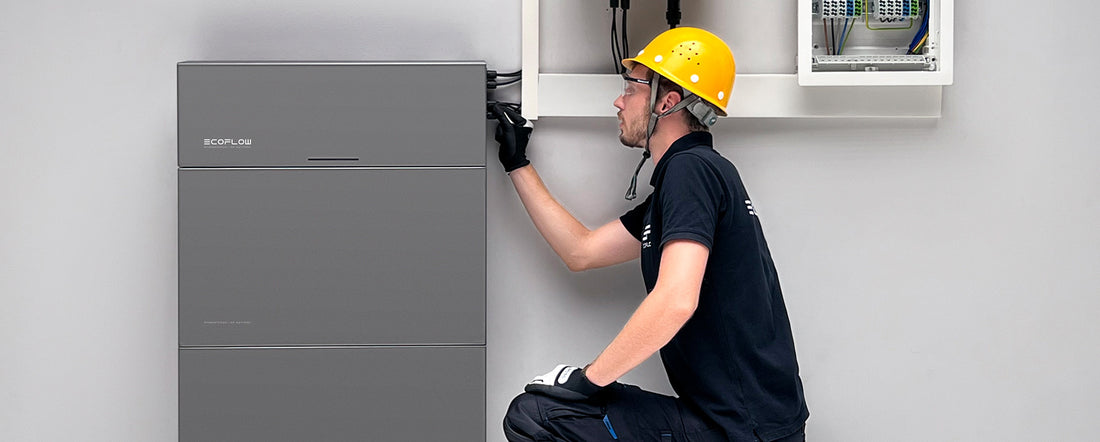Understanding the Differences Between AC-Coupled and DC-Coupled Solar Batteries

As an installer, you understand the role that energy storage plays in optimising solar PV systems. When it comes to integrating batteries with solar systems, AC-coupled batteries have typically been more common, but more and more DC-coupled options are hitting the market and gaining popularity. Whether prioritising efficiency, cost, or ease of installation, understanding the differences allows you to offer the best solutions to your clients.
Advantages of AC-Coupled Systems
- Ease of Retrofit: Compatible with a wide range of inverters and battery types, AC-coupled systems can be easily integrated into existing AC solar setups, saving you time and money.
- Flexibility: Allow for greater system design flexibility with multiple string solar inverters in various locations, supporting gradual expansion should your customer want to add to their system in the future.
- Reliability: Separate inverters ensure that battery faults don’t directly impact solar PV generation.
- Compatibility: Integrate seamlessly with grid-tied systems, allowing batteries to charge from both solar panels and the grid, ensuring reliable power for your customers.
Disadvantages of AC-Coupled Systems
- Efficiency Loss: Multiple energy conversions (DC-AC-DC) result in higher energy losses compared to DC-coupled systems.
- Higher Cost: More expensive due to additional components like a second inverter.
- Time-Consuming: Increased installation and maintenance complexity due to separate inverters for solar panels and battery storage.
- Lower Power Supply: Not ideal for off-grid installations; they typically can’t handle surge loads of multiple appliances.
Advantages of DC-Coupled Systems
- Simplicity: Fewer components make DC-coupled systems simpler to install and manage. Batteries can be retrofitted quickly without replacing the inverter.
- Higher Efficiency: Up to 3% more efficient than AC systems due to avoiding multiple conversion losses.
- Cost-Effectiveness: Generally more affordable due to reduced hardware costs and fewer conversion steps, leading to lower installation and equipment costs.
- Optimal for Off-Grid Systems: Ideal for systems where energy is stored and used within the same system without frequent AC conversion.
Disadvantages of DC-Coupled Systems
- Limited Retrofitting: Less suitable for existing AC-based solar installations, requiring significant and costly changes.
- Complex Configuration: Requires careful planning for proper voltage matching and system integration.
- Inverter Dependency: Failure of the single inverter renders the entire system inoperative until repairs are made.
Choosing the Right System
Both AC and DC systems have unique advantages and considerations. AC-coupled systems are ideal for existing installations where retrofitting and expansion are important. They are suited for applications requiring grid interaction, such as providing grid services or where existing infrastructure is AC-based. They offer flexibility and compatibility, making them a preferred choice for residential and commercial applications where modularity is important. DC-coupled systems excel in new installations designed for efficiency and cost optimisation. They are ideal for off-grid systems, microgrids and setups where maximising solar utilisation is critical.
We're here to help
Whether it’s for a new installation or an upgrade to an existing setup, we can provide the best advice and service when it comes to selecting a battery storage system that ensures optimal performance and satisfaction for your customers. Contact us today for help and advice.
By Admin HDM Solar






